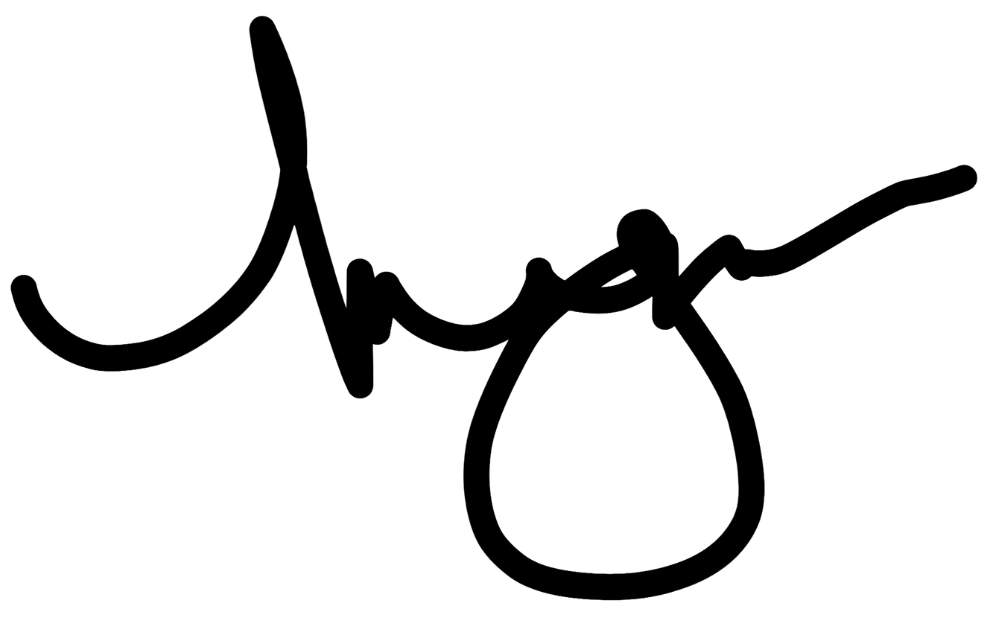Human Be(com)ing explores how to desire better, decide wisely, and act differently in an often overwhelming and bewildering age.
Greetings, friends!!
Let’s get right to it, shall we?1
(FYI, this post may cut off in your email provider, but the full post is available on the web.)
The Contemporary Crisis of Human Dignity
We’re not sure what stories to believe about ourselves or about the world. We don’t know who to trust, or even why we should trust anyone. We’re frustrated, disillusioned, and burned out. Everything we knew or trusted is devolving and breaking down more every day.
Silicon Valley tells us to assimilate to our algorithmic overlords and feed all our work to (insatiable) LLMs. Wall Street tells us that money only flows upstream. Washington tells us that a nation exists for certain kinds of people (and if that’s not you, tough luck). Education functions to produce new workers on the assembly line, and work functions to produce more consumers.
At every point, contemporary life wants to make “human beings” a problem to solve, a pathology to treat. Humanity, we’re told, is a lost cause.
I disagree.
What I am against is our slovenly willingness to allow machines and the idea of the machine to prescribe the terms and conditions of the lives of creatures, which we have allowed increasingly for the last two centuries, and are still allowing, at an incalculable cost to other creatures, and to ourselves. -Wendell Berry
The AI Challenge to Human Identity
The AI story is but one part of the contemporary Western experience these days: the sense of being overwhelmed by information, events, options, obligations, time. Everything seems to move so fast, and we barely keep up. The very tools held out as the path to greater freedom and leisure seem to have trapped us on a conveyor belt of efficient machinery—against which we humans (the inventors of said machines!) are measured and found wanting.
Like many of you, I’ve been tracking the increased proliferation and visibility of AI tools and their encroachment into everything. I’ve listened to the rhetoric around generative AI, the (overblown) promises, the business decisions around hiring and personnel. Stories of companies pressuring employees with AI, that it’s “coming for your jobs,” leave me shaking my head at the fear-mongering. Yet I also can’t help feeling that flicker of worry: “Wait…what can I do then?”
This relentless AI campaign challenges three key aspects of human identity:
Personhood: We’re told that what makes us human—our creativity, our reasoning, our ability to synthesize information—can be replicated and improved upon by machines.
Useful Work: The utility and value of human labor is increasingly questioned as AI systems demonstrate competency in knowledge work, routine tasks, and even pseudo-emotional intelligence.
Creativity: AI systems now generate art, write stories, compose music, and produce content that many find comparable to human creativity.
The Universal Principle of Purpose
As the chatter around AI and machines-driven life increases, I find myself thinking about purpose.
Purpose isn’t unique to humans—tools, systems, organisms all have purpose, an aim or end toward which they tend, a function to fulfill. Every system, from the simplest organism to the most complex machine, operates according to some organizing principle, some direction that gives coherence to its existence and activity.
A heart pumps blood. A tree reaches toward sunlight. A computer processes information. Each fulfills its design, serves its function, achieves its purpose within the larger system of which it’s a part. Even AI systems, for all their sophistication, operate according to the purposes programmed into them by their programmers—to optimize, to predict, to generate, to solve problems within defined parameters.
This universality of purpose might seem to diminish human uniqueness. If everything has purpose, what makes ours special?
Flourishing encompasses how humans live deeply and well—not only with mental and physical health or financial security but also with a sense of meaning and purpose; the cultivation of one’s character; close relationships and community; and, for many, the pursuit of sacred transcendent goods, such as salvation, peace, or union with God.
-Byron R. Johnson, “Measuring the Good Life”
What Distinguishes Human Purpose?
But humans hold purpose a bit differently. For us, purpose transcends survival or function; it becomes part of what it means to flourish, to live a good life. We are the only creatures able to reflect on our purpose. We are the only ones able to choose otherwise.
In his essay “On Edward O. Wilson’s Consilience,” Wendell Berry writes, “It’s easy for me to imagine that the next great division of the world will be between people who wish to live as creatures and people who wish to live as machines.” That moment of division and decision has arrived.
This capacity for self-reflection, for choosing our purpose rather than simply being driven by it, points to something theological: our creation in the image of God (imago Dei). Unlike other organisms that fulfill their purposes through blind instinct, or machines that execute their programming, humans bear the unique capacity to:
Transcend our training: While we have biological drives and cultural conditioning, we can examine these influences and choose to act otherwise. We can sacrifice immediate gratification for long-term goods, act against our self-interest for the sake of others, create beauty that serves no “survival” function.2
Choose our purposes: We don’t simply discover our purpose; we participate in its construction. We can reject inherited purposes and embrace new ones. We can redefine what it means to flourish, what constitutes the good life, what deserves our devotion and attention.
Reflect on ultimate questions: Humans alone ask why anything exists at all. We wonder about our place in the cosmic order, about whether our lives matter beyond their immediate effects, about what happens after death. This capacity for ultimate questions reveals something profound about our nature.
The Trinity of Human Flourishing
To understand how human purpose functions differently from mechanical or biological purpose, we need to distinguish between three related but distinct concepts that shape human flourishing:
Meaning looks to the past. It’s the story we tell about how our experiences fit together, how we got to where we are, who we’ve become through the long string of moments that shape our identity. Meaning comes from reflecting on what came before.
Purpose looks to the future.3 That meaning helps us determine the paths we will or will not travel in the future as we move toward what could be. It’s what we find compelling about who we want to become, the vision that draws us forward, the destination that gives direction to our choices. Purpose comes from what we find motivating about what could be.
Significance connects meaning and purpose in our present. It’s the sense of congruity we experience when our daily actions align with both our past story and our future vision—that gravity or settledness we feel when all the stars align and we’re working at the intersection of skill, knowledge, and calling.
This temporal dimension of human purpose—this integration of past, present, and future in a conscious, reflective narrative—distinguishes us from both biological organisms (which operate primarily in response to immediate conditions) and artificial systems (which optimize for programmed objectives without any coherent narrative or self-awareness).
Purpose as the Organizing Principle of Human Life
With this understanding, we can see that purpose functions as the organizing principle of distinctly human life in three key ways:
Purpose as Destination
Purpose gives us something to move toward, a vision of who we’re becoming that transcends our current circumstances. As Tolkien observed, “we must travel hopefully if we are to arrive.” Purpose imbues our journey with that ability to hope.
Unlike AI systems that execute tasks within predefined parameters, or organisms that respond to environmental stimuli, humans can envision futures that don’t yet exist, and can orient their lives toward bringing those futures into being.
Purpose as Standard
Purpose provides a measure by which to evaluate our choices and behaviors. It lets us ask whether our present actions align with our deeper convictions about who we’re designed and called to become. This evaluative capacity—this ability to hold ourselves accountable to transcendent ideals—reflects our nature as independent persons created in God’s image.
Purpose as Filter
If purpose gives us a destination and helps us measure our performance, it also helps us make hard choices between what often are equally good, interesting, and beneficial options.
The realities of modern Western life leave us with a smorgasbord of choices: from college to major to career to marriage to house to hobbies to religion to children to politics to countries… We have the opportunity to choose just about anything from everything the world has to offer. It is, to say the least, overwhelming.
Sometimes it feels paralyzing, especially when paired with the 24/7 deluge known as “the internet.” How are we to navigate this journey of our lives?
By having a clear and strong purpose against which to compare and contrast our choices.
Purpose allows us to see which option better enables us to move toward it, and which moves us away from it. It reminds us, as one writer puts it, “which problems are actually worth solving.” Purpose calls us back to ourselves—to the human-sized lives and places we inhabit, and the human speed at which we move.
Purpose also focuses our attention, both what we notice now, and what we see in our past. The past, both our own and others’, teaches us about what endures, about what transcends cultures and histories and countries. It can, according to Simone Weil, show us “something better than we are.” Purpose can reframe our past, help us discover different or deeper meaning in it. We may notice this most clearly when we’ve experienced something life-altering, a crisis or epiphany: suddenly what came before becomes newly charged, or irrelevant, or otherwise recombined.
Purpose turns a kaleidoscope lens on our life.
The Aliveness That AI Cannot Replicate
In a recent newsletter, Oliver Burkeman writes about what it looks like to “fully inhabit” one’s life, reflecting on Christian Dillo’s concept of aliveness: “it’s not about feeling better; it’s about feeling better.” Whatever else AI might accomplish, it will never experience this sense of aliveness—this conscious, embodied, temporal experience of being present to one’s life and choosing how to live it.
This aliveness manifests in our capacity to find the intersection of what we love and what we contribute. As Daniel Pink observes, purpose often lives at this intersection, and “the gratitude of others for your contribution offers a way to find that intersection.”
We long to experience the beauty of a life lived with purpose.
This looks like the older widow who radiates contentment, every word thoughtful, every act intentional. Nothing wasted, everything simple, true.
It looks like the young man who travels the country, lawn mower in hand, cleaning up yards for those without means or capacity to do it.
It’s the local businesswoman who runs a chain of profitable stores in the region, who pays fair wages, shapes healthy work conditions, and goes home to her family at reasonable hours.
Each of these people lives in the wake of a purpose they’ve made their own, committed to expressing their best self, even when it’s not easy or convenient to do so. We admire that clarity. We want it for ourselves.
This is what the Christian tradition calls discipleship—apprenticing yourself to a way of life that transforms not just your actions but your very being. It’s another way of saying, “This is the purpose of my life”—not a function to execute or an optimization to achieve, but a calling to embrace and a person to become.
The Invitation to Participate
Purpose functions as destination, standard, and filter, but first, it invites us to participate. For purpose requires our imagination, to conceive a chapter in our story that doesn’t yet exist.
Purpose asks us to imagine different futures, and to become the kind of people who can make that future come alive. This imaginative capacity—this ability to envision and work toward realities that don’t yet exist—reflects our unique position as creatures made in God’s image. While AI systems extrapolate from existing data patterns, and biological organisms respond to stimuli, only humans can imagine genuinely new futures and commit themselves to bringing those futures into being through sustained effort.
In checking your present against your purpose, by drawing up meaning from your past, you are in constant conversation with your life, re-dreaming and re-creating your story. In this ongoing, lifelong conversation, you re-focus on your purpose to bring your hope, your creativity, and your wisdom to bear in sharing a story that invites the rest of us to come along.
Purpose becomes your lodestone, your north. It shows where you’re flourishing, not just surviving, and sharpens your vision to focus on what truly matters to you.
This is the purpose-focused life—a life lived in conscious dialogue between who you’ve been, who you’re becoming, and who you choose to be today. It’s a life that no algorithm can optimize, no machine can replicate, and no external force can take from you.
Choosing Creaturely Purpose in a Machine Age
The rhetoric around AI often presents us with a false choice: either embrace our obsolescence or compete with machines on their terms. But there’s a third way—the way of embracing our creaturely nature and the unique form of purpose that flows from being made in God’s image.
This means:
Accepting our embodied limitations rather than trying to transcend them through technological augmentation. Our finite perspectives, our need for rest and relationship, our mortality itself—these aren’t bugs to be fixed but features that shape the particular kind of purpose available to us.
Embracing slow, human-scale purpose rather than the rapid optimization of machine learning. Our purposes unfold over decades, through relationships, in particular places. They can’t be efficiently executed, but must be patiently and hopefully lived.
Choosing depth over breadth, wisdom over information, formation over performance. While AI systems excel at processing vast amounts of data, humans excel at the slow work of integration, reflection, and wisdom—the work of becoming the kind of people who can steward purpose well.
Welcome to the purpose-focused life.
Take a look at how you responded to last week’s SloDo. Has anything from this essay illuminated, transformed, or otherwise changed about your response?
Let’s be hopeful, creative, and wise—together.
Shalom,
A Note on AI
I use LLMs at the END of my writing process, to help me edit the work, zoom out to find patterns I’ve missed, and generate social media posts, title ideas, and other related tasks that make me want to shrivel up in a corner and die. The blood, sweat, and tears are wholly my own.
And yet, ensures our survival, as a friend reminds me.
But is also informed by the meaning we’ve drawn from our past.















